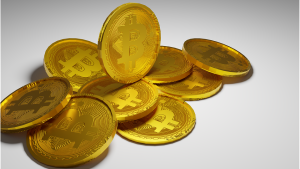
Share this
Coinbase has launched a new derivatives exchange in Bermuda, a totemic act showing that the largest US crypto exchange is doing business when it claims that US cryptography rules are becoming increasingly unviable. The stock exchange, which has publicly entered into a dispute with the U.S. Securities and Exchange Commission (SEC) over a number of issues, was granted a license to do business in the island nation last month as it seeks to conduct tests in international waters.
Founded by CEO Brian Armstrong in 2012, Coinbase has become the second largest crypto exchange-second only to Binance, without a head office – in terms of transaction volume, mainly due to close cooperation with US regulators. His IPO in 2021 came at the end of a lengthy SEC review process, leading many to assume that the agency had approved his business model. But over the past two years, during the reign of Gary Gensler as chairman of the SEC, the company has been at an impasse with the regulator.
Coinbase Global is launching a new product for professional investors outside the United States.
Why it matters: This is a blow to international markets in the context of a broader exodus from the country to crypto exchanges and services.Coinbase Abandons Proposed Cryptocurrency Lending Program After Dispute With SEC
Coinbase and the Securities and Exchange Commission
Coinbase is one of the largest crypto exchanges in the U.S. Armstrong says it was a deliberate decision, as he believes that America should be at the forefront of this nascent industry. However, his views may change. In a recent editorial for CNBC, he warned that “the United States risks falling behind both technologically and politically.”
This year we have witnessed several actions taken by the Securities and Exchange Commission (SEC) regarding cryptographic platforms, and there is still a lot of confusion as to whether cryptocurrency falls under the jurisdiction of the Commodity Futures Trading Commission (CFTC). Currently, most cryptocurrencies are treated as commodities. But the SEC claims that many cryptocurrencies are actually securities that should fall under its jurisdiction. There are strict rules regarding how securities are exchanged and traded that do not apply to commodities.
Last year, the Securities and Exchange Commission banned Coinbase from launching a product with the possibility of obtaining a loan. He also accused two former Coinbase employees of insider trading violations. Most recently, he hit Coinbase with a Wells notice about potential securities violations. In fact, it is a warning that he is considering taking coercive measures against him. In a rebuttal, Coinbase insisted that “it does not list titles or offer our customers products that are titles.”
In addition to volatility, the relative lack of regulation is one of the serious risks associated with investing in cryptocurrency. As we saw in the case of the FTX crash, investor protection is not very effective, and there is a lack of transparency about what some of these platforms are doing with customer funds. The problem is that the industry has experienced impressive growth under relatively few regulations. Now regulators are trying to develop tougher controls. Unfortunately, it’s a bit like closing a door after a horse is bolted.
Coinbase International Exchange
The new international exchange Coinbase has received the approval of the regulatory authorities of the Monetary Authority of Bermuda. It will be available only to institutional investors in certain countries, except the USA.
This will allow qualified investors to trade perpetual futures on cryptocurrencies, which is a kind of trading in derivative financial instruments. In fact, derivatives allow investors to speculate on the future price of a commodity – in this case, Bitcoin (BTC) and Ethereum (ETH). Unlike traditional futures contracts, perpetual futures contracts have no expiration date, which means that traders can keep their positions open longer.
The new exchange will also offer five times more leverage. Leverage allows investors to multiply both their profits and their losses by trading mainly with borrowed funds. Trading using borrowed funds and derivatives can be extremely risky, especially for such an unstable asset class as cryptocurrency.
A Coinbase press release states: “In 2022, perpetual futures accounted for almost 75% of the global volume of cryptocurrency transactions, which created highly liquid markets and provided traders with additional versatility in their trading strategies.”
What does this mean for American investors
The new exchange is not available in the United States, where cryptocurrency derivatives are strictly limited, especially for retail investors. Thus, the service will not have a direct impact on American investors. However, what may affect American crypto investors is the more international orientation of Coinbase, especially in combination with Armstrong’s comments about possible offshoring.
For American crypto investors, the issue of regulation is key. In the absence of clear guidelines, Coinbase states that in this country there is “an approach based on the application of regulatory requirements.”It says that the SEC is punishing the crypto industry for violating rules that were not clearly stated. “Coinbase and other crypto companies are facing potential enforcement action from the SEC, although we have not been informed about how the SEC believes the law applies to our business,” he claims.
In the long run, increased regulation could strengthen the foundations of the industry and build much-needed confidence. But in the short term, this could lead to even more volatility and push crypto companies to move to other countries. This could have an impact on how digital currencies are developing in America and how investors can buy or sell cryptocurrencies. As an investor, keep an eye on changes in the industry and regulation, as both can affect your portfolio.





